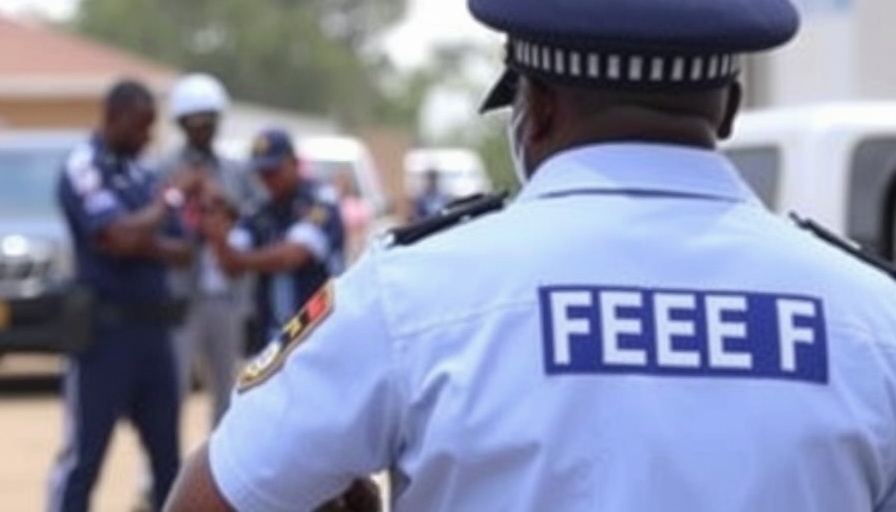
The Shooting Surge: A Deep Dive into KZN Police Operations
In a shocking disclosure, KwaZulu-Natal (KZN) authorities revealed that 105 suspected criminals have been killed in 38 shootouts involving police this year. The police action, which has drawn both condemnation and support, raises critical questions about crime prevention strategies in South Africa, particularly in a province plagued by high crime rates.
The Broader Crime Context in South Africa
The KZN shootouts are emblematic of a larger narrative of violence and conflict between law enforcement and criminal syndicates in South Africa. As the country grapples with escalating crime rates, particularly violent crimes, these confrontations signal a new phase in the government's approach to law enforcement. With a noted increase in gang violence and drug trafficking in major cities, the police's forceful response raises debates around police reform and crime control strategies.
History of Police Violence and Community Distrust
Historically, police forces in South Africa have faced scrutiny for excessive use of force, often resulting in high-profile incidents that have left communities divided. The legacies of apartheid-era policing still haunt contemporary law enforcement, creating a delicate relationship between police and the communities they serve. The current administration's heavy-handed approach may inadvertently exacerbate tensions, making community cooperation crucial in the fight against crime.
Policy Implications and the Role of Governance
As these violent encounters continue, criticism of government policies regarding policing and public safety has intensified. Civil rights organizations argue that a focus solely on violent crime without addressing underlying issues such as poverty, unemployment, and education will be ineffective. Strong calls for comprehensive reforms that include social initiatives alongside policing efforts echo throughout urban areas suffering from prolonged crime.
The Economic Impact of Crime on South African Society
Crime, particularly violent crime, not only jeopardizes safety but also stifles economic growth. Businesses frequently cite crime as a barrier to investment, particularly in regions heavily affected by gang violence. Economic recovery efforts are hampered when public perceptions of safety deter foreign investment and local entrepreneurship. The need for policies that create secure environments is increasingly urgent for a nation striving toward recovery from economic downturns.
Future Predictions for Crime Control and Safety in South Africa
The future of crime control in South Africa may hinge on balancing law enforcement responses with community engagement strategies. For every shootout that results in suspected criminals being killed, there are broader implications involving social trust and public perception of safety. Experts suggest that employing technology, such as advanced data analytics for crime prevention, could provide law enforcement with tools to better anticipate and mitigate crime before it escalates into violence.
Conclusion: Navigating the Crossroads of Law and Community Relations
The revelations from KZN police regarding the number of shootouts indicate a critical need for dialogue between authorities and community members. As these events unfold, the essential question remains: how can South Africa reshape its approach to law enforcement to foster safety without sacrificing public trust? As professionals, community leaders, and policymakers navigate these complex dialogues, it’s crucial that lessons learned from past incidents are effectively integrated into future strategies. Addressing issues of crime, community safety, and police accountability remains imperative for building a climate of trust and security.
Now is the time for all stakeholders to take action — whether by supporting community safety initiatives or advocating for comprehensive reforms in public safety. Your engagement could help shape the future of safe neighborhoods in South Africa.
 Add Row
Add Row  Add
Add 




Write A Comment